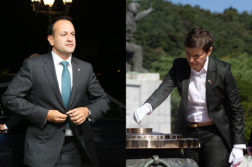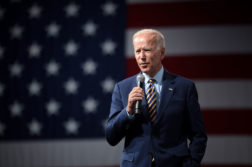Big expectations lead to big disappointments. That’s what some learned from Barack Obama’s Shanghai "town-hall" meeting this week with "future Chinese leaders".
Hopes that the students in attendance might ask some vaguely challenging questions; hopes that Obama would directly criticise China’s human rights record; hopes that the event would be easily accessible online to Chinese citizens: all were crushed as Monday’s meeting progressed with no real deviation from … well, from what one might expect when a high-level leader addresses the public within China.
This is a country in which politics is played via oblique angles; criticism is usually preceded by praise, the negative almost always reflected off a positive.
But was Obama just employing the kind of "soft diplomacy" preferred by the Chinese Government in his Shanghai tête-à-tête? Or did he actually go soft and blow his chance to put pressure on the Chinese Government?
Certainly there was no direct criticism of Chinese Government policy but in his opening address he did raise concerns about his host’s ongoing violations of what he claimed to be "fundamental rights".
"Freedoms of expression and worship — of access to information and political participation" are universal rights which should be available to all people, he said — after the disclaimer that the US does not seek to impose any system of government on any other nation.
While stating these rights should be available to "ethnic and religious minorities", Obama did not directly mention Tibet (or Xinjiang, for that matter). With the ongoing trouble in these regions, this was a lost opportunity to highlight some very serious human rights concerns. If Prime Minister Kevin Rudd could get away with a rebuke about Tibet in an address — in Mandarin — at Peking University, why couldn’t Obama?
No doubt the US President was choosing his issues carefully. The Shanghai "town hall" meeting was not aimed at a western audience. Rather, it was Obama’s first chance to engage with mainstream China, which is 92 per cent Han Chinese, and mostly believes that Tibet is an inseparable part of the motherland.
So instead he focused on an issue which was more likely to win the hearts of this audience: internet freedom. Prior to the President’s visit, US State Department officials met with some of China’s most controversial bloggers. Their meetings pre-empted the comments Obama went on to make in Shanghai in support of "open internet use".
The discussion turned in this direction in response to a question about Twitter and the great fire wall. Not only were the 500 or so students in attendance able to ask Obama questions themselves, questions were also fielded via online portals. Once the floor was opened to the audience, the questions were read out by US Ambassador Jon Huntsman.
And while some believe Obama’s response about being a "big supporter of non-censorship" was definitely in the "soft" category, there were a lot of positive reactions from within the Chinese internet community. Even the most fervently patriotic Chinese would find it hard to argue against greater internet freedom — although some do just that.
The questions raised at the "town hall" had been carefully vetted and were just what one would expect from hand-picked Chinese students in dialogue with a US president. One student raised the issue of US arms sales to Taiwan, another asked about the US role in Afghanistan, and a third asked Obama what he would do to respect the different cultures and histories of other countries.
Obama’s answers were extremely diplomatic. He did weave in a careful point on climate change action — "all of us should have these certain obligations" — and called for a restrained and "self-reflective" use of military force. The only time he appeared to struggle was with the cross-straits relations question. He almost tripped and called Taiwan a part of China.
Of course, those who had looked forward to some kind of open, robust exchange of views would have been disappointed. But in a country where top leaders very rarely take questions as part of press conferences, it’s hardly surprising that the Chinese side of the Shanghai meeting was a highly stage-managed affair. There would be no repeats of the shoe thrown at George Bush, or the Falun Gong activist who heckled President Hu Jintao when he did actually front the press.
So it wasn’t at all surprising to find out that some, if not all, of the students in the audience had close affiliations with the Chinese Government: "The first female student Chen Xi who asked a question to Obama is the Deputy Director of the Research Office of the Communist Youth League of Fudan University. The second male "student" who asked a question to Obama: Huang Lihe, the Communist Youth League Secretary of the Foreign Language School of Tongji University," said tweeter @secretaryzhang, translated by China Digital Times.
Some accused the students of being members of the "50-cent party", a reference to Chinese netizens who are paid on a post-by-post basis to skew public opinion by adding comments favourable to the government on internet message boards.
Foreign media outlets sidestepped these questions, focusing instead on the censorship of the event. China’s state media failed to provide the live online broadcast that they’d promised and some had difficulties logging onto the official White House videocast. Furthermore, parts of Obama’s address — namely the bit where he talked about internet freedom — were quickly erased from local news sites like Netease and Sina and Twitter and Facebook are still blocked. News of Obama’s "town-hall" did not top the national broadcaster, CCTV’s, evening news.
This was in contrast to the meetings held by Bush and Clinton with Chinese students which were broadcast live on CCTV. But then, Bush and Clinton didn’t have the same charisma and popularity here as Obama, or the kind of appeal that has sparked the "Obamao" craze.
So how many Chinese citizens did actually watch the Shanghai meeting? According to ConnectSolutions which provided one of the two videocasts, "nearly 7000 Chinese citizens in over 200 different cities" logged on to watch it. In a country with 350 million internet users that’s not a whole lot. It’s also not known how many overseas Americans and other expats were part of this figure.
So while comments from Chinese internet users suggest that it’s been an interesting week for some on the web, for most locals, the immediate impact of Obama’s visit on their lives has been the traffic delays caused by his motorcade, and the extra police on the streets.
Donate To New Matilda
New Matilda is a small, independent media outlet. We survive through reader contributions, and never losing a lawsuit. If you got something from this article, giving something back helps us to continue speaking truth to power. Every little bit counts.



